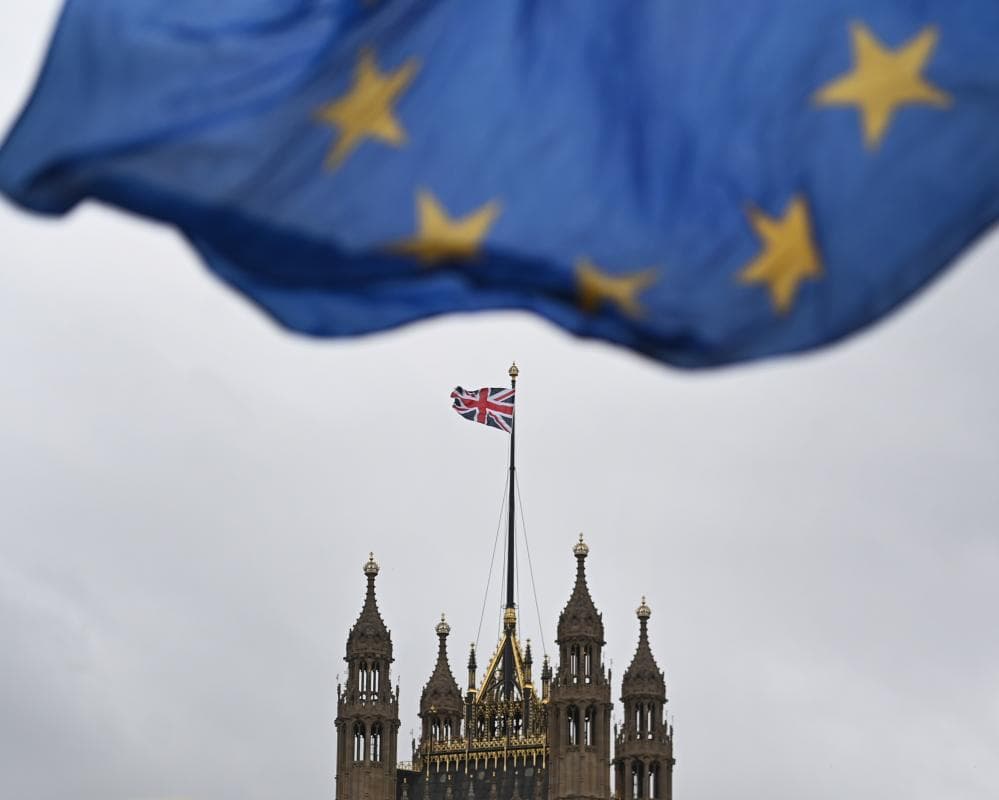EU confirms it wants UK to pay into its budget in exchange for closer ties

Click any word to translate
Original article by Jennifer Rankin in Brussels and Lisa O’Carroll
The UK must pay into the EU budget for future participation in the European single market in electricity, it has been confirmed, in what could become a major test for the post-Brexit reset.
Ireland’s Europe minister, Thomas Byrne, said EU member states had decided the UK should make a financial contribution for closer ties: “Ireland wants to see Britain getting the benefit of closer engagement with the European Union.
“Ultimately there is a cost to a lot of that and there are discussions to be had in terms of the cost to Britain, and certainly some other member states would see that as a priority issue. I think that is just being politically realistic.”
In an unexpected move, the EU decided last week that the UK should pay towards its budget in order to join the European electricity market.
It would mean the UK paying into the EU budget, although Britain already pays EU membership legacy costs. The two sides are also deadlocked over the EU’s demand for an entry fee of up to €6bn (£5.3bn) to allow British companies to maximise benefits from a €150bn (£132.1bn) EU defence programme.
In more welcome news for the government, Byrne said he hoped both sides could strike a deal to ease food and animal checks at the border in the second half of 2026, during Ireland’s presidency of the EU Council. Last week, the EU agreed a mandate for the European Commission to negotiate this veterinary agreement. “I think that could be a gamechanger,” Byrne added.
During a landmark summit in May that launched the government’s EU reset, Keir Starmer and the commission president, Ursula von der Leyen, agreed the two sides “should explore in detail the necessary parameters for the United Kingdom’s possible participation in the European Union’s internal electricity market”.
The text did not spell out that the UK should pay for access – but since then, a large majority of EU member states have decided this should be the case. Several countries, including Belgium and Germany, have warned against allowing the UK to “cherrypick” the best bits of the European single market without abiding by common rules.
Commission officials briefing EU ministers on Monday described the UK as a “complicated and challenging counterpart” and said “nerves of steel and unity” would be required through upcoming negotiations. The central challenge would be financial considerations, they added.
Tensions over money have already emerged in negotiations over UK participation in the EU’s €150bn security action for Europe (Safe) fund. EU officials have suggested an entry fee of up to €6bn, far higher than the administrative fee the government had envisaged paying.
Peter Ricketts, the veteran former diplomat who chairs the European affairs committee in the House of Lords, has described a rumoured €6.5bn fee as “so off the scale that it suggests some EU members don’t want the UK in the scheme”.
Some media outlets have reported the entry fee could be between €6.5bn and €6.7bn, but the Guardian understands the commission has proposed a fee ranging from €1bn to €6bn, proportionate to expected UK benefits.
Sandro Gozi, an Italian centrist MEP who co-chairs the EU-UK parliamentary assembly, said it was imperative to show voters that the reset meant something.
“We have to exploit this time window of opportunity to show to citizens [and] business that working together again through this partnership makes a difference, and to persuade, especially UK public opinion, but also the public opinion in our union, that it is worth to put energy, effort time in our renewed bilateral relationship,” he said.
A UK government spokesperson said Britain was “committed to a broad and constructive relationship with the EU” and work was ongoing to implement the package agreed at the UK-EU summit. “We will only agree deals that provide value to the UK and UK industry. Nothing has been agreed, and we will not give a running commentary on talks.”
Barry Andrews, an Irish delegate on the EU-UK assembly who is a member of Byrne’s Fianna Fáil party, said progress had been “terribly slow” since the May summit and political energy was absent.
“Given the current geopolitical situation, we should be absolutely racing towards agreement with the UK, and particularly on defence,” he said.